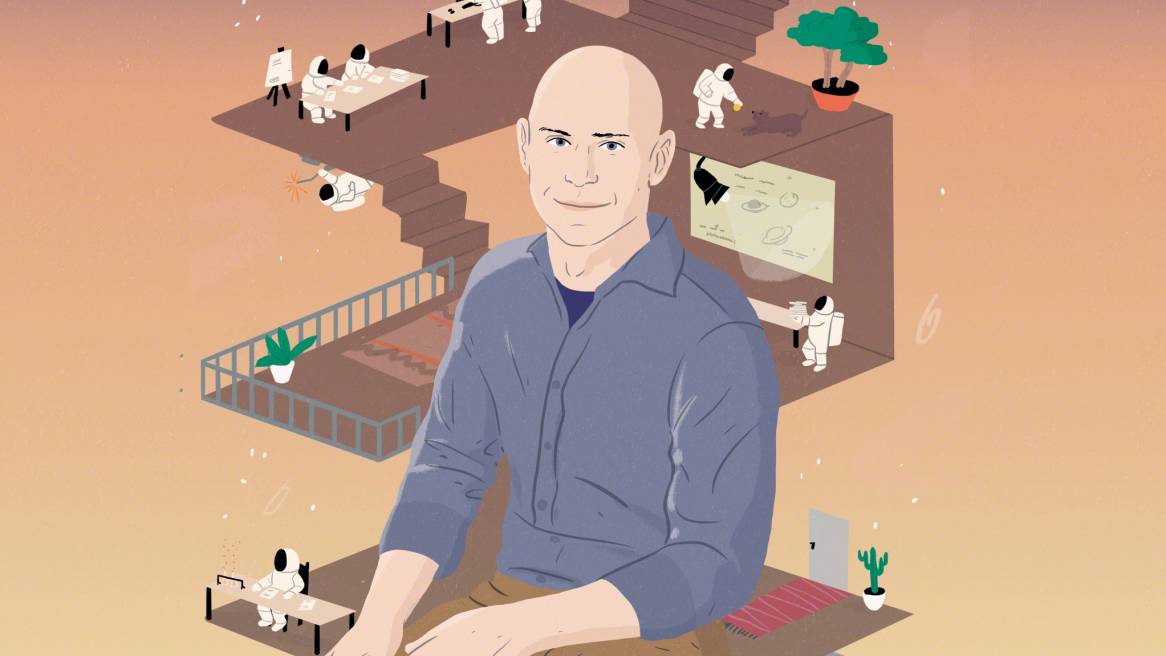Does Your Work Matter?
Q+A with Adam Grant
Who would be worse off if your job didn’t exist? Your answer is what Adam Grant says generates meaning in your work. An organizational psychologist, author and host of TED’s WorkLife podcast, Grant spends his time figuring out how to make work “not suck.” Working with lots of organizations from diverse industries (even astronauts), he’s always learning and trying new ways to approach the traditional office environment. He shared with 360 what he’s learning about building trust and finding purpose at work.
360: It feels like we’re hearing a lot about the search for purpose at work right now. Why do you think this is front and center?
Adam Grant: It’s clear that the strongest driver of meaningful work is feeling like your job makes a difference in the lives of others. When you think about what gives people a sense of purpose, it’s about feeling that your work has an impact on others and if your job didn’t exist other people would be worse off. What’s interesting is if you look at surveys since the early 1970s asking people to rank different features they want most in a job, around 2000 ‘meaningful work’ was number one. Yet, if you go back to the ‘70s and ‘80s, it was number one then, too.
ADAM GRANT JOINS OUR PODCAST
Want to hear more from Adam? In our episode “How to Make Work Not Suck,” he questions the corner office and explains why procrastination can be a good thing.
360: Teams trying to innovate have to be willing to fail. That takes trust. But, a lot of organizations go about building trust wrong. Why?
AG: I talked to a crew of astronauts who have been to the International Space Station and the leadership experts who helped train them. They all told me the same thing: Trust is not about how much you like your crew. It’s about how much you can count on your crew. We don’t have to have many traits in common, come from the same place or believe in the same things, as long as I can count on you to do a good job and have my best interest or mission at heart.
In the case of this crew of astronauts, they had actually been enemies. Americans were flying to a Russian space station. Both astronauts and cosmonauts had been in the military. They’d lived through the Cold War. Now, they’re supposed to live together, work together and trust each other. That trust comes from clarity of mission. It comes from recognition of confidence. It comes from being a little bit vulnerable so that when you take a risk, the other person doesn’t harm you.

360: Are there things organizations do that make you say, ‘That’s not going to work?’
AG: One of the things that drives me crazy is how many team building activities and exercises people do. It’s all shallow. We’re going to have a ping pong tournament, a mixer or a party. The problem is that people don’t really mix at mixers. They mostly hang out with the people who are similar to them, who they already know. They also don’t have to overcome any challenges
together. What is it they’re possibly going to learn about trusting each other when everything is easy and fun?
Trust is not about how much you like your crew. It’s about how much you can count on your crew.
360: If that’s not the right approach, then how do you build trust?
AG: If you want to build trust, you actually want to de-fun. Instead of doing something simple and lighthearted, you actually work with a group of people to solve hard problems that matter. Bonds of trust are forged, character is tested and you see who people really are when it’s not necessarily the most pleasant experience. That happens when you’re creating something or trying to solve a problem together.
360: What message do you think the physical workplace communicates to employees?
AG: Office design is huge when it comes to sending signals about hierarchy. I don’t know about you, but if I’m leading an organization I don’t want to be hidden off in the corner in my own territory. I want to be in the center of it—where the action is. When I walk into companies where there’s a separate floor for executives and they all have their own offices, it’s like you’re in a labyrinth. If I have an idea, how do I get it to somebody who can do something about it?
That doesn’t mean I’m a big fan of open plan offices which often wreak havoc for introverts. I think there’s a middle ground. That means our leaders should sit in the same general territory as the people who work with them, but we should also give everybody a chance to close the door when they need to focus.

360: People are seeking different places to work, but on the other hand, organizations are asking them to come together to solve big, wicked problems. How do you approach that tension?
AG: I think balance is the key. There was a meta analysis of every study that looked at the impact of telecommuting. It found if people are able to come together for part of the week, it’s fine for them to work independently for the rest of the week. I’ve had some leaders say, ‘How do I monitor them and make sure they’re working?’ My response is, ‘If you need to do that you’ve failed at leadership because they should find the work meaningful and motivating enough that they want to do it.’
360: Of all the organizations you’ve worked with, what has surprised you?
AG: One of the bigger surprises is related to status. Generally speaking, the people who cling to status cues are the ones who are the most insecure about their own status. Being in a corner office is not a signal that you’ve achieved status. It’s a signal that you still desperately seek status as opposed to feeling like you don’t need it. I even see some of this in my own world in academia when a professor has their students call them Professor Last Name as opposed to their first name. Why do you have to rely on a title for status? Why can’t you earn it through the way you command respect? We should talk to each other on a personal level as opposed to trying to create this awkward professional distance that seems to put someone on a pedestal who can’t earn it.


